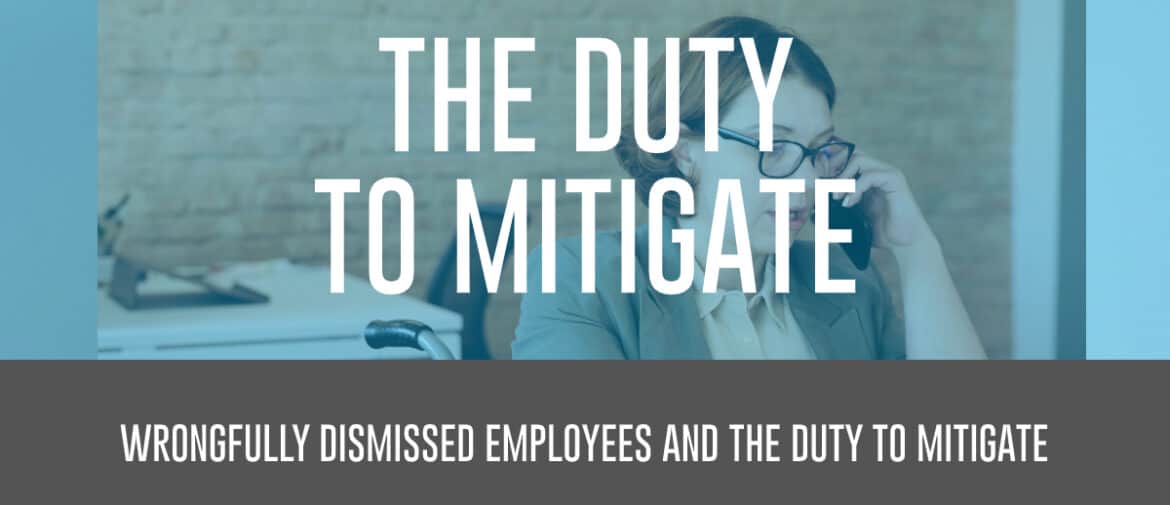When an individual is wrongfully dismissed, it can be difficult for them to get back on their feet right away.
If an individual has been working for the same employer for some time, making a specific salary, they may get used to a standard of living commensurate with that salary.
So, when an individual is wrongfully dismissed from their job and left without an immediate source of income, it may mean that they can no longer sustain that standard of living for a period of time, and this can be devastating.
Through the existence of notice periods and severance pay, the law recognizes that wrongfully dismissed employees may need some time to get back into the workforce.
However, the law also expects these individuals to be ready, willing, and able to go back to work, and to actively seek employment during the notice period.
This is called the employee’s Duty to Mitigate (“DTM”). This blog discusses DTM in more detail, so that the reader can gain a better understanding of their rights and obligations, should they ever end up in the unfortunate situation of being wrongfully dismissed.The Duty to Mitigate
In BC, the leading case authority on DTM is Forshaw v Aluminex Extrusions Ltd, a 1989 BC Court of Appeal case.
In Forshaw, the Court summarized two distinct components of DTM.
1) A dismissed employee has a duty to take reasonable steps to obtain equivalent employment elsewhere and to accept such employment if available.
This is a duty that the employee owes only to themselves, however, and not to their former employer. It is also noteworthy that an employee is not expected to take just any job that comes up when they’ve been dismissed, but rather a job that is equivalent to the one they were fired from.
2) A dismissed employee has a duty to act reasonably in seeking and accepting alternate employment.Conclusion
In summary, DTM is a duty that an employee owes only to themselves, and not to their former employer. The employee must act reasonably in finding another job. However the employee is not expected to just take any job they can find once they have been fired, but rather they are entitled to seek out another job that allows them to maintain their income and the same type of employment.
That said, if an employee does find an equivalent job during their notice period, it should be noted that any income they earn during the notice period could potentially be deducted from their damages, if they are also suing their former employer for wrongful dismissal.
DTM can be tricky to navigate, and it is good practice to get the advice of a lawyer in order to determine what your obligations are with respect to DTM when you’ve been fired from your job.
If you need to seek the advice of an employment lawyer, please call (778) 565-4700 or simply fill out our contact form to schedule a free consultation today.
The preceding content is for informational purposes only and does not constitute legal or professional advice. To obtain such advice, please contact our offices directly.
About the author
Simon practices in the areas of employment law and litigation, including small claims litigation. He has represented clients in commercial litigation matters such as commercial lease disputes, and breach of contract cases. In addition to court proceedings, Simon has experience assisting clients in arbitration proceedings and negotiating settlement agreements. Learn more about Simon.
Last updated on April 6th, 2022 at 12:07 pm

